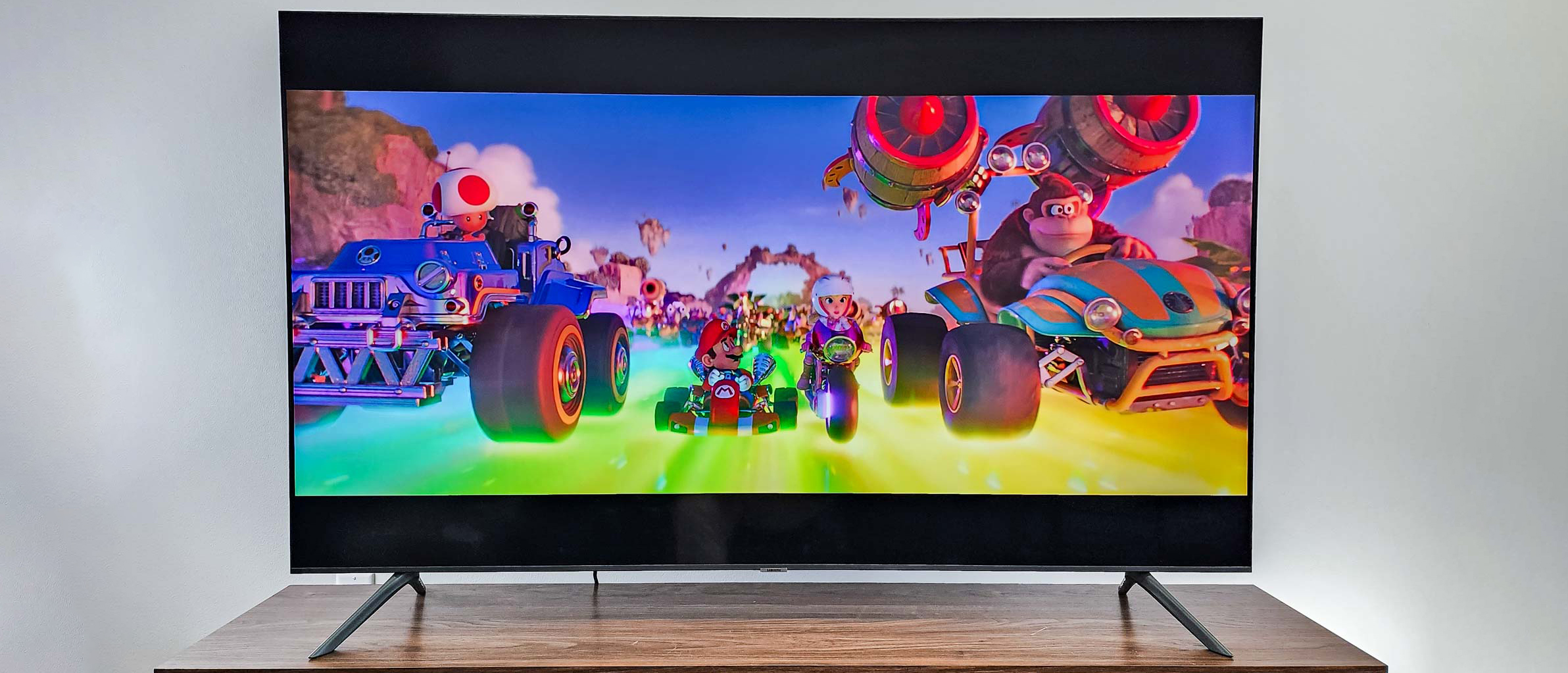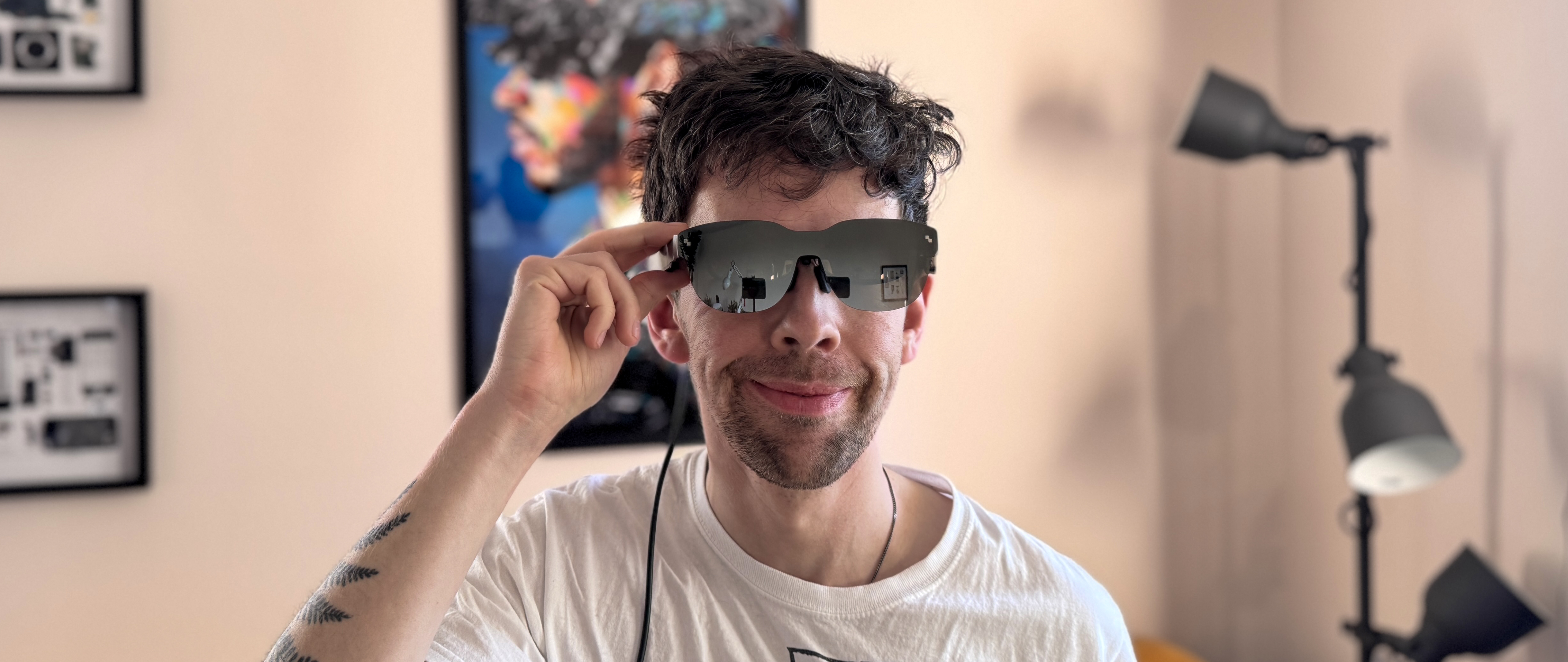Tom's Guide Verdict
With the exception of low input lag that will make it attractive to gamers, the Samsung CU7000 doesn’t have much more than its price to offer against its better-looking, more powerful competition.
Pros
- +
Low input lag
- +
Okay sound
Cons
- -
Low brightness in SDR or HDR
- -
Mediocre color performance
- -
Few compelling features
Why you can trust Tom's Guide
Price: $599.99
Screen size: 70 inches
Model: UN70CU7000F
Resolution: 3,840x2,160
HDR: HDR10, HDR10+, HLG
Refresh Rate: 60Hz
Ports: 3 HDMI 2.0, 1 USB
Audio: 20W
Smart TV Software: Tizen
Size (without stand): 61.3 x 35.4 x 2.4 inches
Weight (without stand): 54.7 lbs.
The Samsung CU7000 LED TV is the entry point of the entry level: one of the very lowest-priced TVs Samsung has to offer. And if the price is all you care about, if you need a TV — any TV — but have very little to spend, it will get the job done. And if you have any gamers in the house, its input lag is impressively low.
But considering its picture quality, sound, smart software, and remote control, there’s not a lot else great to say about the CU7000 in comparison with many other lower-end TVs on the market — even some bearing the Samsung name.
Samsung CU7000 review: Pricing and availability
The CU7000 is available in eight different sizes:
- Samsung UN43CU7000F (43 inches): $279.99
- Samsung UN50CU7000F (50 inches): $349.99
- Samsung UN55CU7000F (55 inches): $379.99
- Samsung UN58CU7000F (58 inches): $449.99
- Samsung UN65CU7000F (65 inches): $479.99
- Samsung UN70CU7000F (70 inches): $599.99
- Samsung UN75CU7000F (75 inches): $729.99 | $649.99 on sale
- Samsung UN85CU7000F (85 inches): $1,099.99
We evaluated the 70-inch CU7000 model, but we expect all sizes to have essentially equivalent performance.
Samsung CU7000 review: Design and features
Lacking any significant design flourishes, unusual colors, or outward-facing features, the CU7000 is unremarkable to look at. It’s not unduly thin (it measures 2.4 inches at its thickest point), and the two claw-shaped feet that constitute its stand are nondescript as well. The TV may instead be mounted on the wall using the 400 x 300 VESA holes on the black, textured back panel.
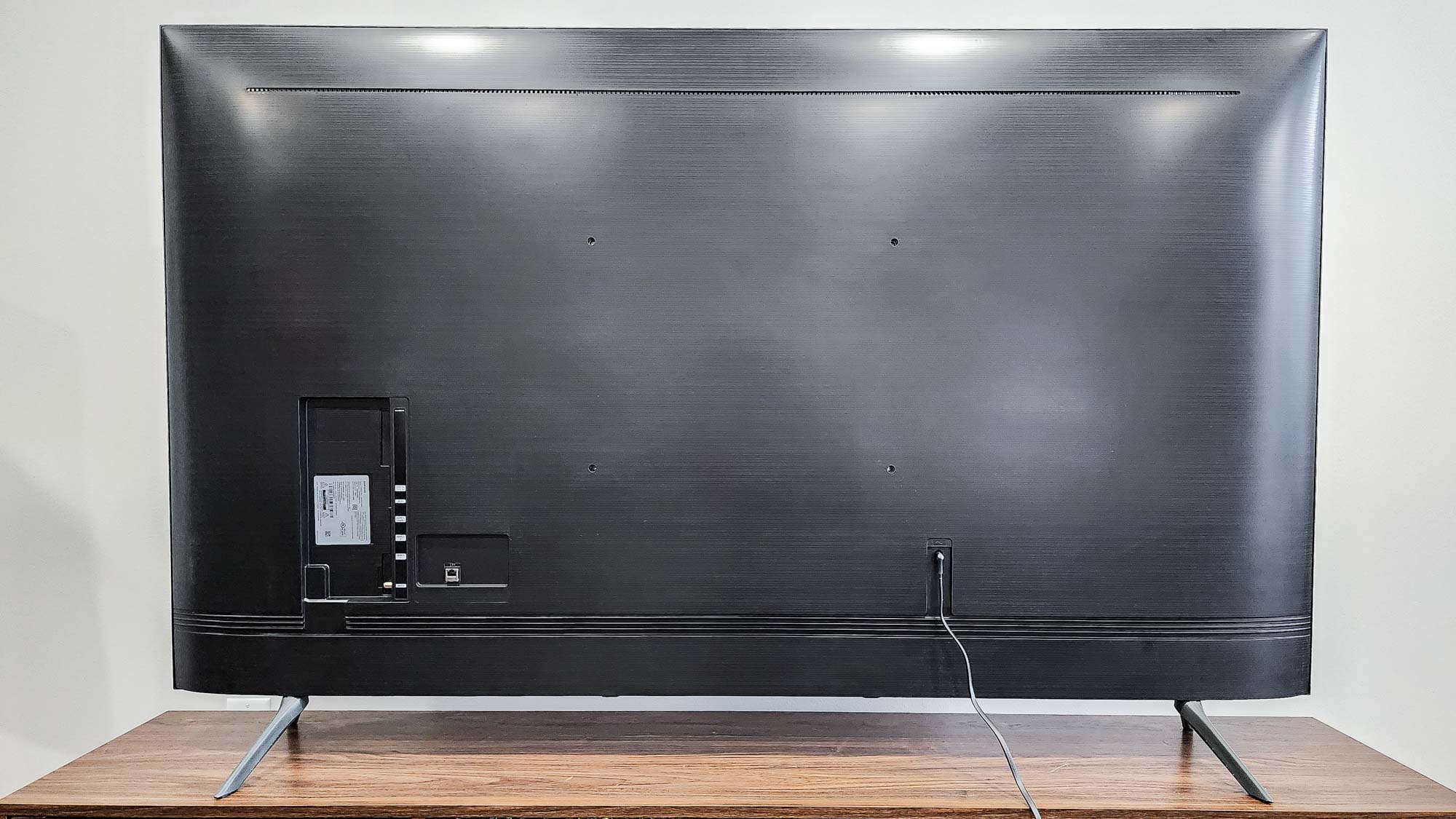
Facing out the right edge of that is a no-nonsense collection of ports. It comprises one USB, three HDMI, and coaxial, with an Ethernet port a few inches away, positioned straight out the back rather than to the side. The HDMI ports only support the older 2.0 standard rather than the newer 2.1, so you won’t have access to fancier gaming features such as Variable Refresh Rate (VRR). The panel limits you to 60Hz regardless, however.
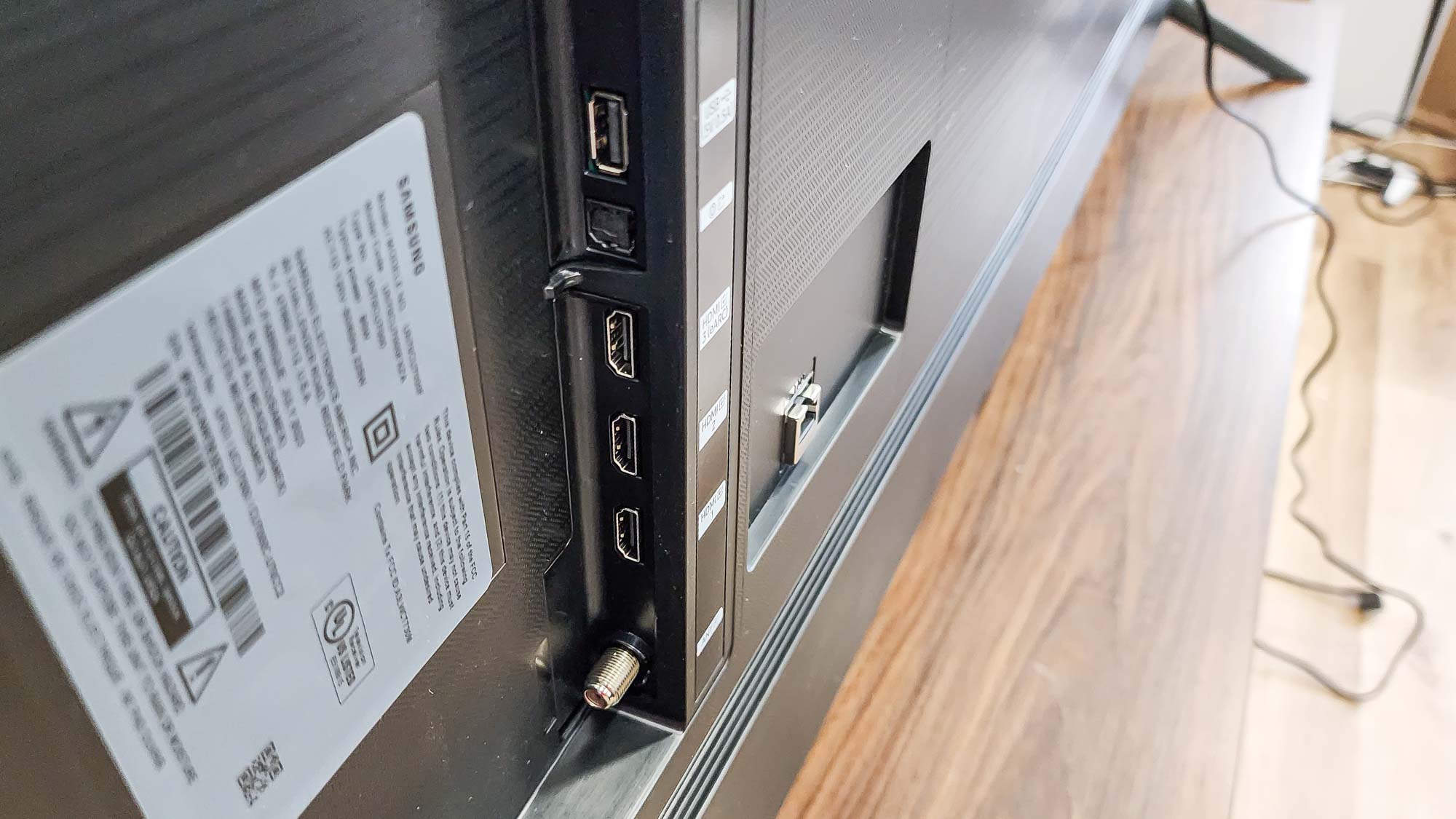
The CU7000 uses a slightly scaled-down implementation of Samsung’s Tizen smart interface, which gets you where you need to go to access apps or live programming but does so with minimal style or ease. But even the full-out version on Samsung’s higher-end TVs is looking a little ragged these days, so what chance does this one have? Hopefully, Samsung will revamp Tizen — or at least give it a gentle facelift — within the next generation or two.
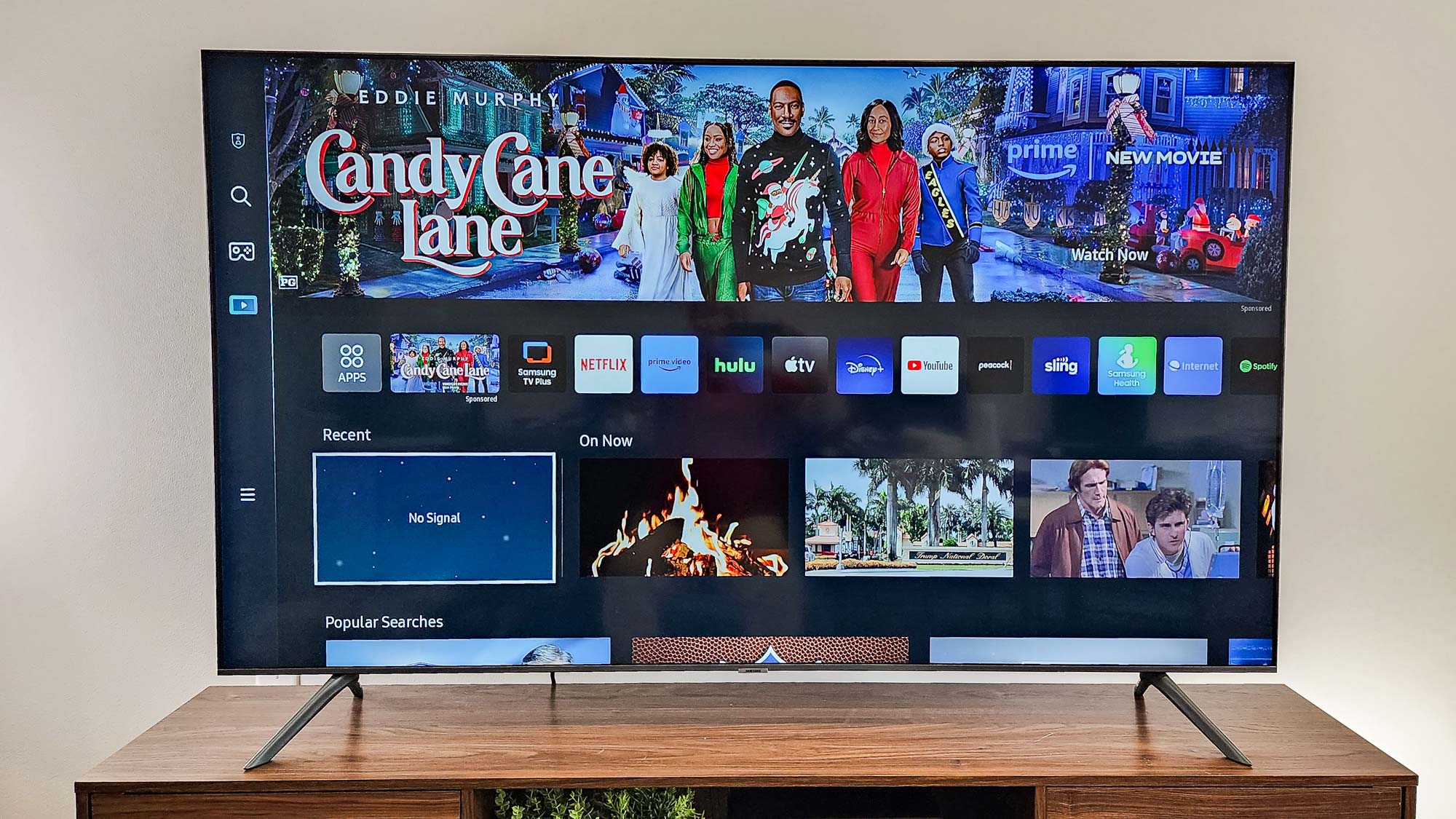
Many recent Samsung TVs have used the innovative new SolarCell remote that integrates a tiny solar cell to obviate the need for batteries. Not so with the CU7000: Its remote, black and svelte with a brushed-metal finish on the front, resembles a longer version of the SolarCell but is instead powered by two AAA batteries.
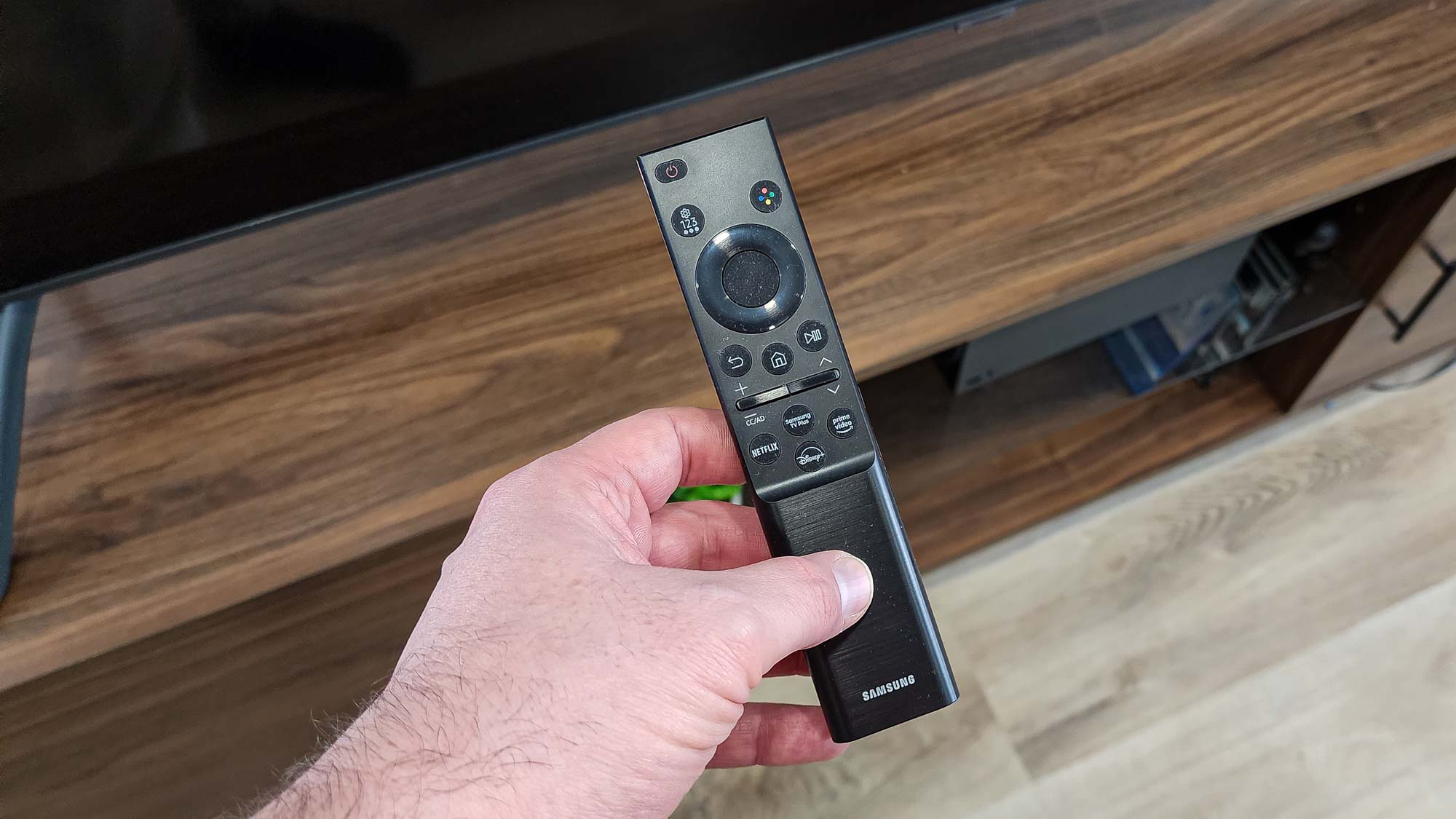
The button layout, however, is similar, which is both good for its uncluttered nature and less good for the learning curve it requires to activate some functions (such as Mute).
Samsung CU7000 review: How we test
For every TV we review at Tom’s Guide, we conduct a series of technical and subjective tests designed to measure the set’s performance. For our technical tests, we use an X-Rite i1 Pro spectrophotometer, a SpectraCal VideoForge Pro pattern generator, and Portrait Displays’ Calman TV-calibration software, and we add a Leo Bodnar 4K Input Lag Tester for measuring the TV’s gaming prowess. Subjective tests vary based on the reviewer, but typically include a diverse selection of movies, TV shows, and other content reflecting the types of things you may actually want to watch on the TV.
For a more detailed look at what we do and how we do it, check out our “How We Test TVs” page.
Samsung CU7000 review: Performance and test results
Let’s not mince words: The CU7000 does not display a terrific picture. Without powerful internal hardware or local dimming, it looks a little bit washed out and unexciting even when operating in its best picture mode (Filmmaker). It doesn’t compare well against other low-cost TVs, either. It gets a bit brighter than the Samsung Q60C when viewing SDR content, but its color accuracy and gamut coverage are worse in both SDR and HDR modes.
| Row 0 - Cell 0 | Samsung CU7000 | Hisense U6K | Samsung Q60C | Sony Bravia X75K |
| SDR Brightness (10%, in nits) | 310 | 334 | 233 | 157 |
| Delta-E (lower is better) | 2.4214 | 3.5783 | 1.6547 | 2.0027 |
| Rec. 709 Gamut Coverage | 95.7657 | 99.4728 | 99.5648 | 93.5566 |
| HDR Brightness (10%, in nits) | 312 | 525 | 356 | 295 |
| UHDA-P3 Gamut Coverage | 79.64 | 97.16 | 92.62 | 78.52 |
| Rec. 2020 Gamut Coverage | 58.84 | 72.13 | 70.35 | 57.57 |
| Input Lag (ms) | 9.6 | 10.2 | 9.0 | 9.7 |
In our measurements, the Hisense U6K had a higher Delta-E, and thus less accurate color, than either set, but trounced both in every other category. The CU7000 trumps only the Sony X75K (in everything except, again, color accuracy), but that’s no accomplishment worth touting.
As a result, nothing really “pops” on the CU7000. We watched a selection of movies spanning a variety of genres and styles, from hardcore action (Top Gun: Maverick and Mission: Impossible—Dead Reckoning Part One) to animated fare (The Super Mario Bros. Movie) and CGI-heavy titles (Avatar: The Way of Water).
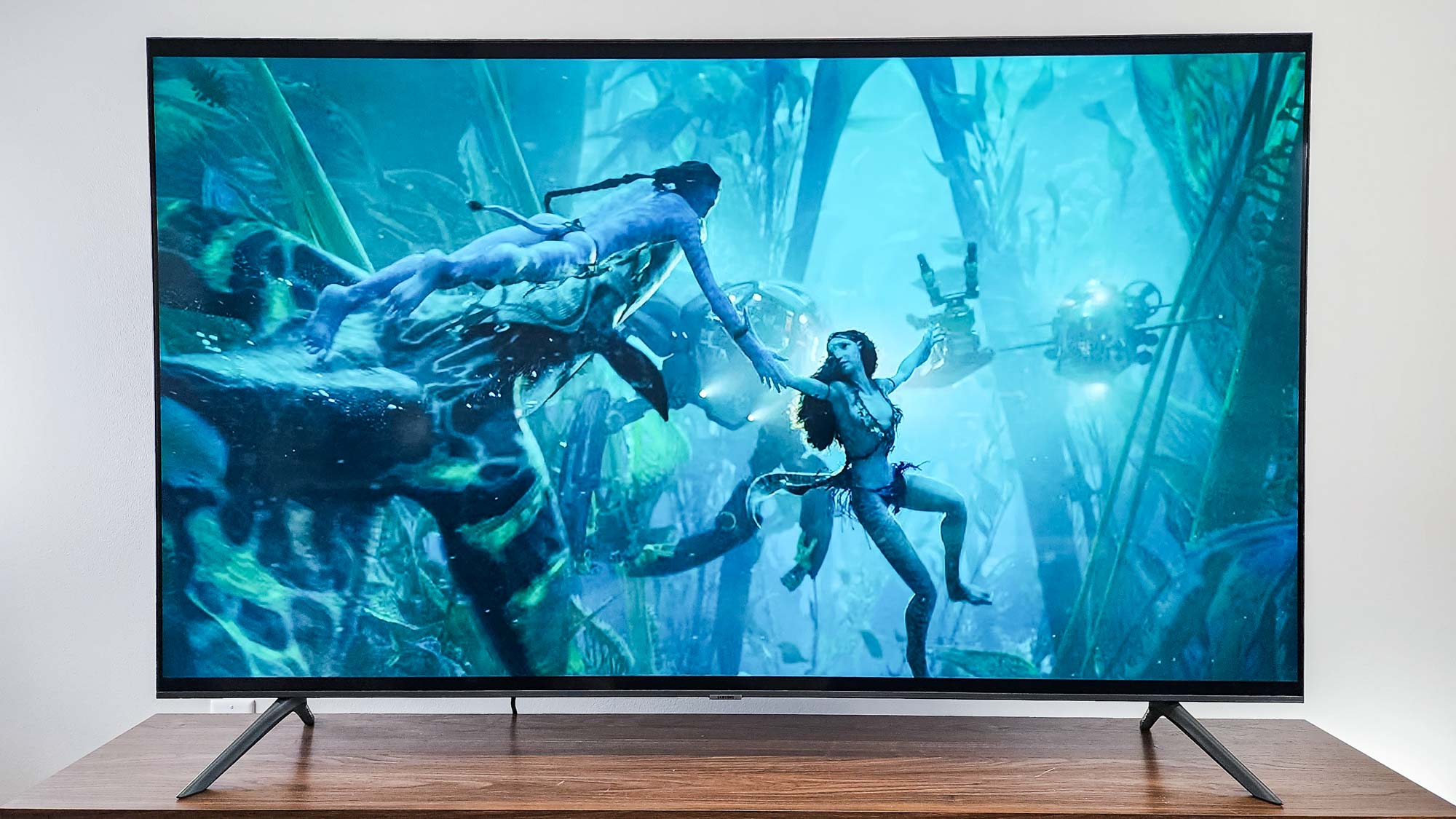
Each of them was, at best, passable, with unexceptional highlights, anti-thrilling blacks, and mushy colors that lacked distinctiveness even when viewed from the center of the screen, where things looked best. We strongly advise not straying too far from there, as the picture degrades quickly as you move even a bit toward the set’s corners.
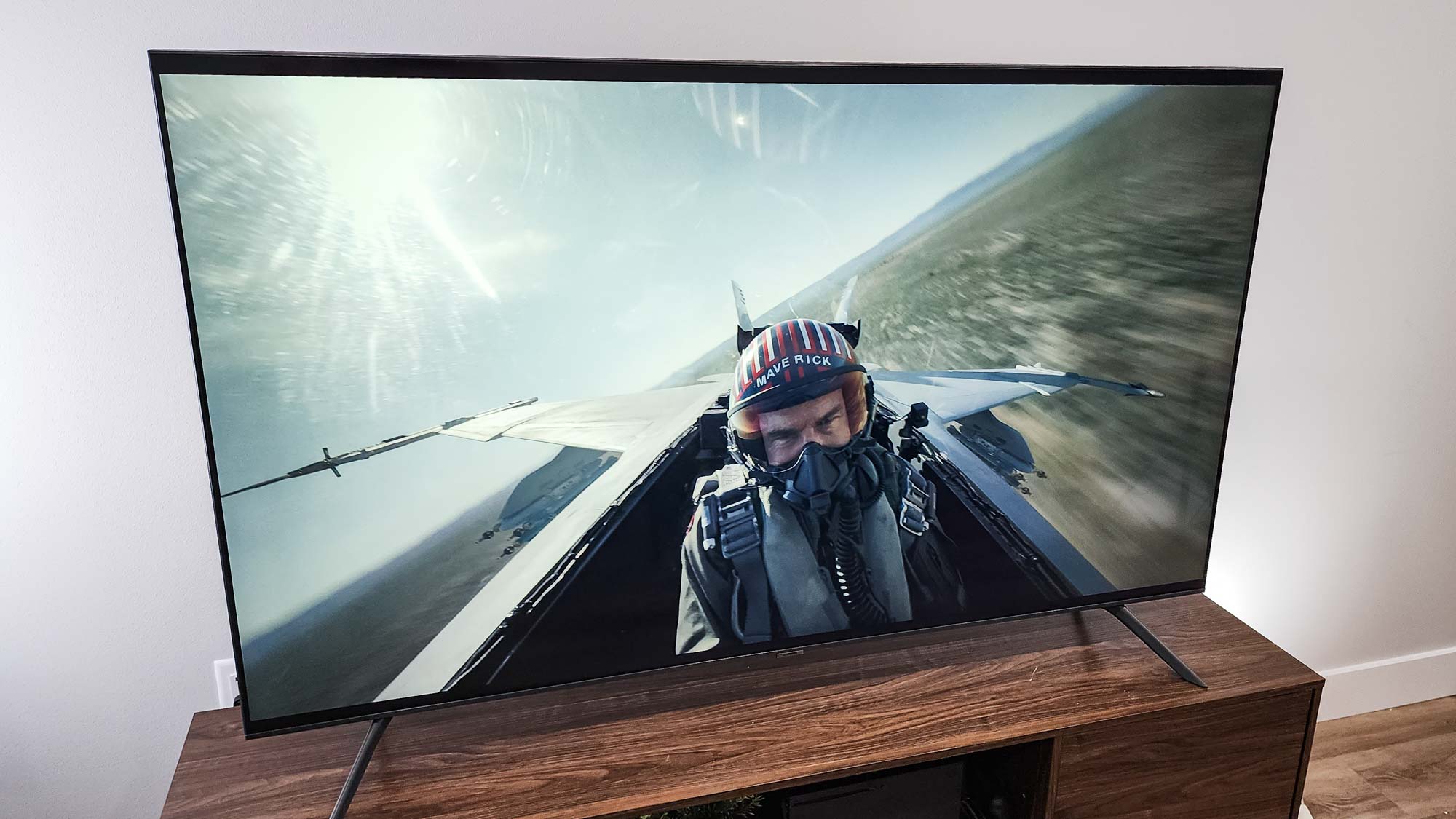
As is true of the Samsung CU8000, the CU7000 doesn’t sound as terrible as you might expect given its 20W speaker system. You won’t mistake what you hear for a movie theater or a symphony hall, but plenty of TVs have sounded worse than this one.
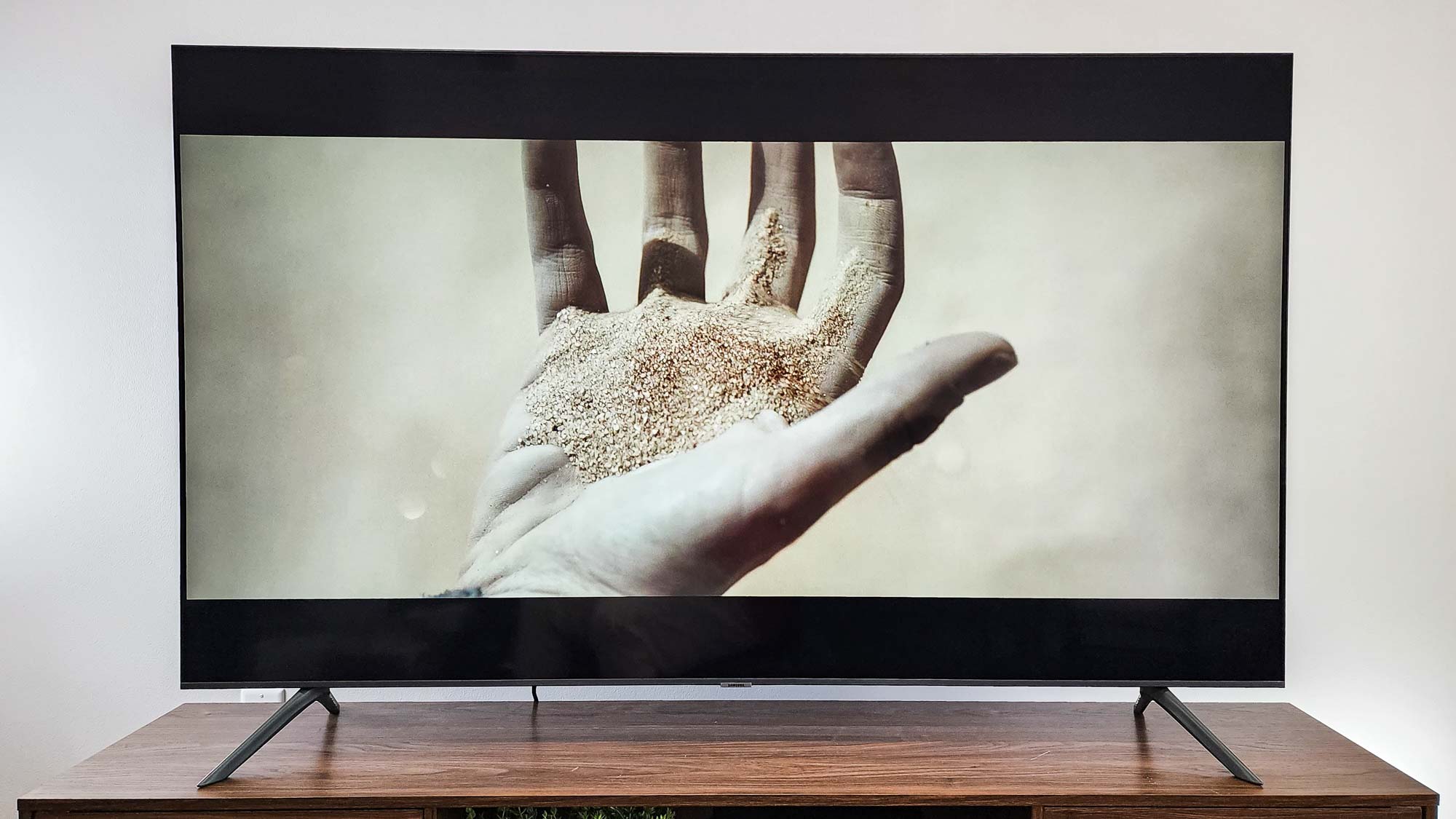
If the CU7000 has one saving grace, it’s its gaming prowess. We measured input lag of 9.6ms, solidly beneath our 10ms threshold for excellent responsiveness and lower than we’ve encountered on any comparable set except the Q60. You will have to contend with the lack of HDMI 2.1 ports, and Tizen’s Gaming Hub, where you can find all your consoles, titles, and music collected together, remains a bit clunky. But much more expensive TVs with higher input lag are common, so it’s worth calling out the one major thing the CU7000 gets right.
Samsung CU7000 review: Verdict
Every TV company needs a product at the bottom of the ladder, and the CU7000 is Samsung’s right now. There’s no denying its affordability, with so many sizes available at low prices, and again, you’ll never have to worry about your commands not registering in console games. For that reason, this set may be ideal for kids: They won’t care so much what the picture looks like, so long as they don’t lose their games. That’s something.
But for everyone else, the CU7000 is a tougher sell. With better TVs from Hisense and even Samsung for sale in this price tier, it’s worth spending a little more money if you have it. The jump in quality in almost every area will be worth it.
Matthew Murray is the head of testing for Future, coordinating and conducting product testing at Tom’s Guide and other Future publications. He has previously covered technology and performance arts for multiple publications, edited numerous books, and worked as a theatre critic for more than 16 years.
